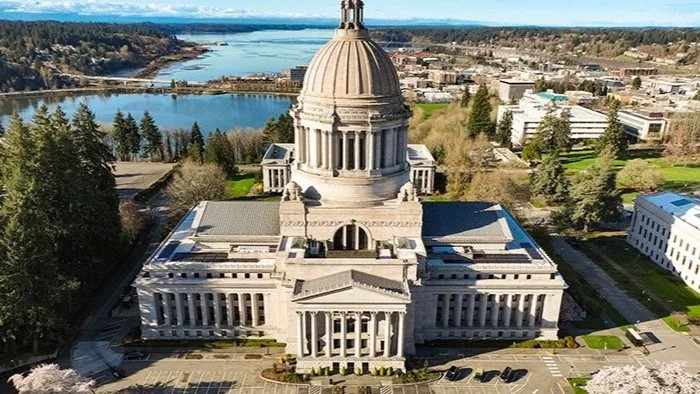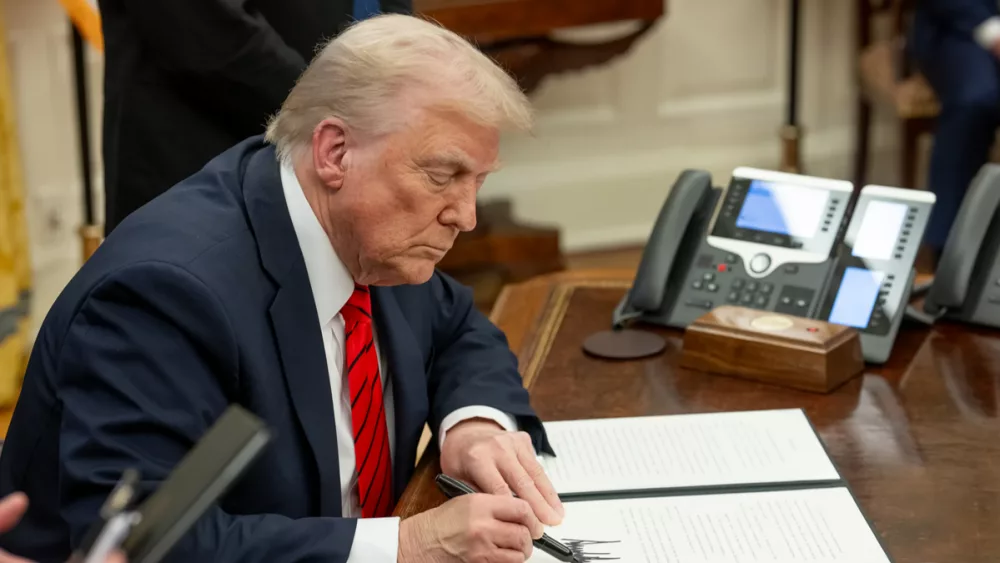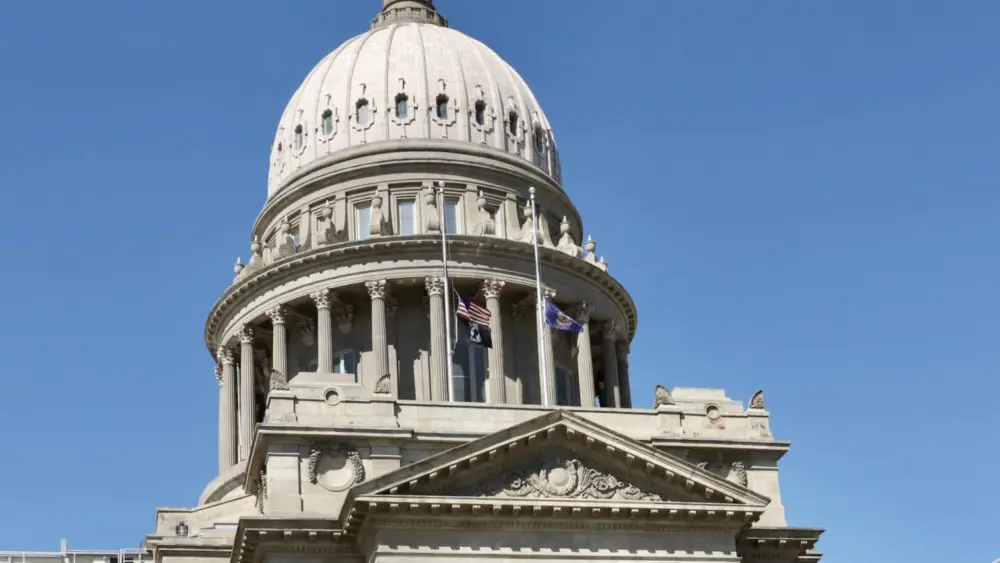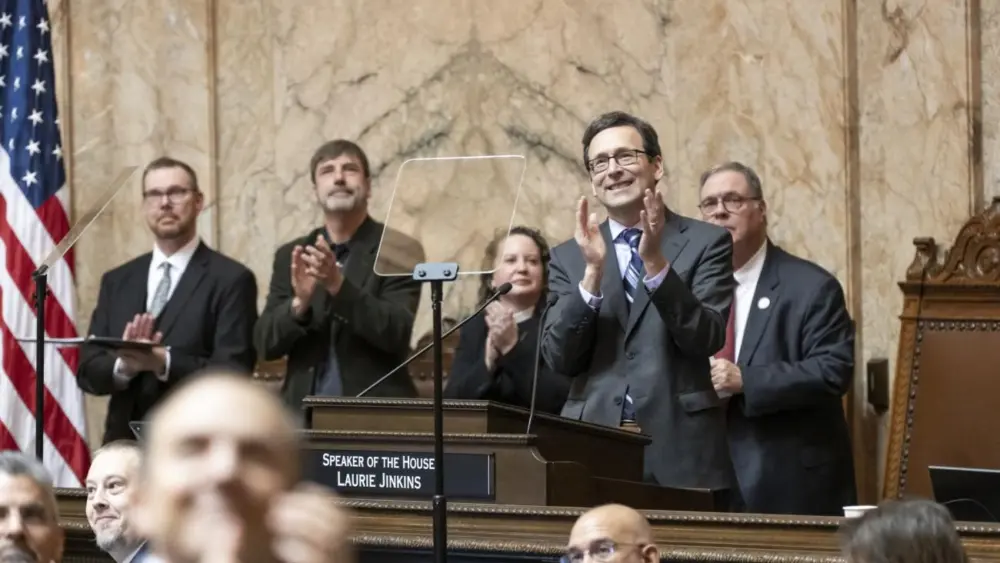OLYMPIA, WA – Washington state budget writers got a mild dose of good news on Tuesday, but are still looking at a strained balance sheet.
Revenue projections show collections up $105 million for the current two-year state budget compared to the last forecast in September. That amounts to a 0.1% increase, a change from previous reports showing precipitous drops.
House Democrats’ chief budget writer, Timm Ormsby, called the forecast a “little welcome relief.”
“We’ve leveled out a bit and stabilized, which was pleasing, but it certainly doesn’t take away from the challenges and difficult decisions we’re going to have to make in the upcoming session,” said Ormsby, of Spokane. “At least we’re not going backwards.”
In the late September forecast, anticipated collections had slid over half a billion dollars since Gov. Bob Ferguson signed off on the new two-year budget in May. Tuesday’s projections inch the state back toward even.
Tuesday’s forecast is the last one before lawmakers return to Olympia on Jan. 12 for a 60-day legislative session where they’ll adjust the budget.
Attention next turns to Gov. Bob Ferguson.
The first-term Democrat will release a budget plan before Christmas, with his proposed tweaks to the two-year, $77.8-billion framework lawmakers passed this year. This current budget runs through June 30, 2027.
“This forecast was not as bad as we feared,” he said in a statement. Still, he said, “This forecast does not change the scale of the problem that my team and I have been working on.”
Ferguson said the next round of budgeting will involve “many difficult decisions” as the state works through deep financial challenges. He said he’d propose a plan that “preserves core services but still makes investments in important areas.”
Sen. Chris Gildon, R-Puyallup, in a statement, said the forecast won’t force the governor to “change course.”
“We will see in a matter of weeks whether he is on the side of taking even more money for government or standing with the families of our state, who have to live within their means,” said Gildon.
Talk of further hikes
Long-term, the state’s budget outlook is still not good.
Estimates show the $105 million rise in expected revenues will be dashed by the end of the next fiscal cycle.
Total revenue through mid-2029 will be down $66 million since projections in September, the state’s chief economist, Dave Reich, told the Economic and Revenue Forecast Council on Tuesday. This includes a slight uptick in revenue in the now-finished 2023-25 budget.
This year, Democratic lawmakers passed billions in new and increased taxes, along with spending cuts, to balance the budget amid a shortfall in the $12 billion to $16 billion range.
The dispiriting projections are driving discussion about additional revenue ideas for 2026, including the untested “wealth tax” and, possibly, an income tax on richer Washingtonians.
But late last month, Ferguson said he was “skeptical of additional revenue.” This year, he rejected a number of tax proposals before signing the eventual package lawmakers approved, which was slimmed from their earlier proposals.
Sen. June Robinson, the Senate Democrats’ budget lead, has already told her Senate colleagues to not even bother asking for earmarks next year from the state’s operating budget because of Washington’s budget crunch.
Robinson and Ormsby are set to meet with Ferguson next Monday to discuss budget plans.
Verging on a recession?
Tuesday’s forecast pegs revenue fueling this budget at over $74.4 billion. While Washington operates on a two-year budget cycle, the budget has to be balanced across four years.
Lagging housing permits and employment growth were drags on Tuesday’s forecast, while it benefits from tobacco settlement payouts and projected increases in estate tax revenue. Statewide employment isn’t likely to grow in 2026, Reich said.
“One explanation could be, we’re actually heading into a recession. They’re hard to see those coming,” Reich said. “But another explanation, and one that many economists have been talking about, is just that we’re in this kind of period of not only slow demand, but slow supply.”
Moody’s Analytics recently listed Washington among nearly half of U.S. states that are in or near a recession. State Rep. Travis Couture, R-Allyn, said the state’s policies would be to blame for this, not the federal government.
“If that’s true, we’ve put ourselves into a recession,” said Couture, the budget lead for House Republicans.
The latest forecast only covers the state’s operating budget, which funds everything from public schools and health care to social services and prisons.
There are separate revenue projections for transportation. Estimates for the transportation budget last week showed an expected $66 million drop in receipts over the next four years, compared to predictions from September. That factors in better-than-anticipated returns in the 2023-25 cycle.
The next operating budget forecast is expected in February.
This story first appeared on Washington State Standard.





